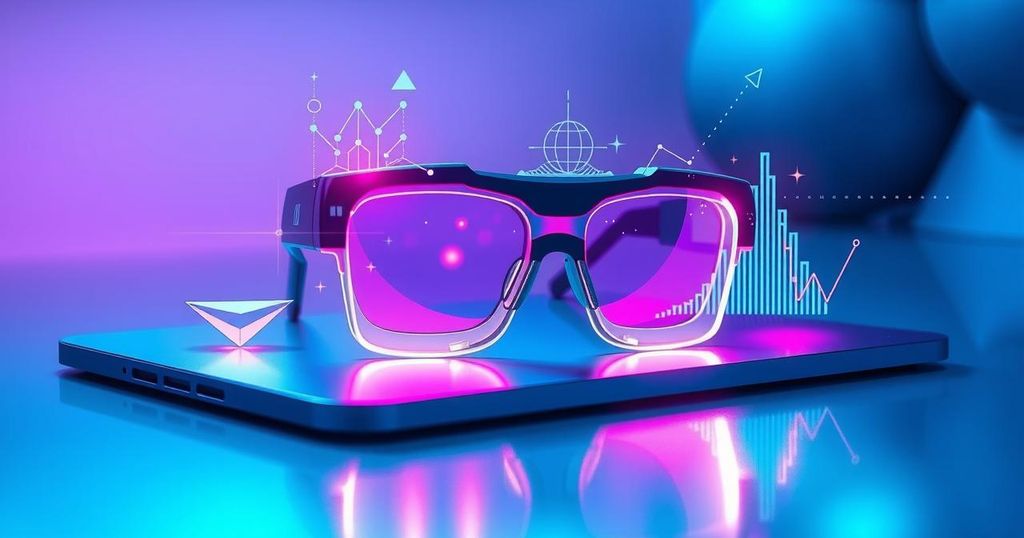Snap and Meta Unveil New AR Glasses and Other Technology News You Need to Know
In recent tech news, Snap and Meta have launched new AR glasses to compete against smartphones, while SpaceX docks a capsule to bring back stranded astronauts. Texas introduces plans for the first 3D-printed hotel, and breakthroughs in medical imaging emerge from London. Meanwhile, BYD recalls thousands of cars due to safety issues, and Hurricane Helene disrupts tech supply chains.
In a month filled with innovation and space exploration, Meta and Snap have made waves by unveiling their latest augmented reality (AR) glasses. These tech giants are setting the stage for a future where wearable tech could stand in for smartphones. Snap recently announced their fifth-generation Spectacles, designed to overlay digital graphics onto reality. However, these tools are tethered to developers, who must fork over $99 a month for a year, just to create AR applications for this advanced gear.
Then there’s Meta, led by CEO Mark Zuckerberg, who showcased the prototype Orion AR glasses at a recent conference. These lightweight spectacles are not just capable of displaying both 2D and 3D content, but they also harness AI technology to interpret data from the user’s environment. Interestingly, they can even be controlled through hand signals and innovative wristbands that pick up body signals—yes, even impulses from the brain.
Over in space, a SpaceX Crew Dragon capsule has successfully docked at the International Space Station to rescue stranded astronauts Barry Wilmore and Sunita Williams. They had initially set out for what was supposed to be an eight-day mission aboard a Boeing Starliner back in June. Alas, technical snafus, like thruster failures and helium leaks, stalled their return. They now must endure a lengthy wait until February 2025 to finally make it back to Earth.
Adding to the complexity, this SpaceX craft, initially meant to carry four astronauts, made the trip with just two crew members—allowing for Wilmore and Williams to hitch a ride home. With NASA’s shuttle fleet retired, the US has leaned heavily on Russia’s Soyuz spacecraft for astronaut transportation, until Boeing and SpaceX stepped in during 2014. Simultaneously, space exploration continues to emerge as a source for addressing Earth-based challenges, as pointed out by astrophysicist Simonetta Di Pippo; she expressed some pretty fascinating insights in a recent interview about this.
In other technology news, Texas is gearing up to build the world’s first 3D-printed hotel. El Cosmico, near Marfa, is set to add 43 new hotel units plus 18 residential spaces, thanks to collaboration with 3D printing company ICON and Bjarke Ingels Group. Owner Liz Lambert is all about creative potential, emphasizing this new method opens avenues for expansive design.
Meanwhile, a new medical imaging breakthrough may be on the horizon from researchers at University College London. They’ve developed a miniature scanner that uses lasers—significantly less harmful than traditional X-rays—aiming to transform how we approach medical imaging. Is this a game changer? Only time will tell.
And let’s not forget the electric vehicle realm! Chinese manufacturer BYD has issued a recall for nearly 97,000 vehicles due to a serious manufacturing issue with steering controls, raising fire safety concerns. On a more forward-looking note, scientists at the University of Southampton claim they’ve successfully stored all essential DNA information on a crystal, using a laser to engrave data, potentially preserving humanity’s genetic blueprint for the distant future.
Lastly, Hurricane Helene wreaked havoc in Florida, claiming over 150 lives and disrupting the major deposit of high-purity quartz—an essential component for tech microchips. The ripple effects of these events promise to be felt throughout the tech supply chain.
This month’s highlights in technology center around innovation and resilience, from Snap and Meta’s ambitious AR glasses to SpaceX’s successful rescue mission for astronauts. Texas is making a bold stand in sustainable hospitality with a 3D-printed hotel, while breakthroughs in medical imaging and DNA preservation show promising potential. All the while, natural disasters, like Hurricane Helene, underscore the vulnerabilities within the tech supply chain. It’s quite a time for tech!
Original Source: www.weforum.org




